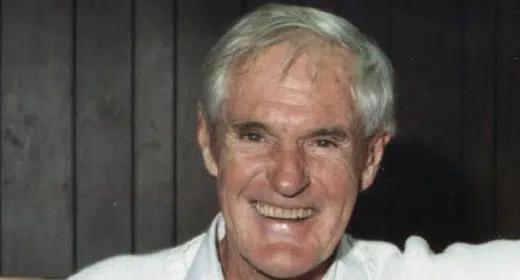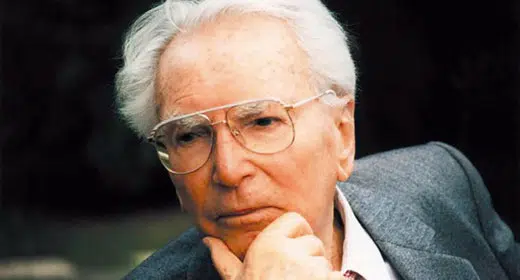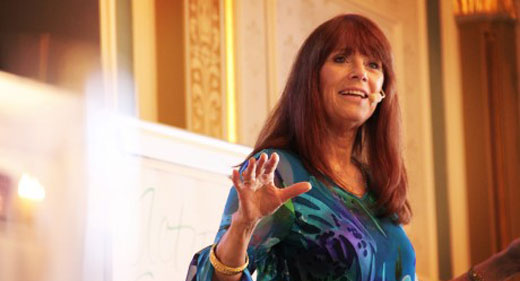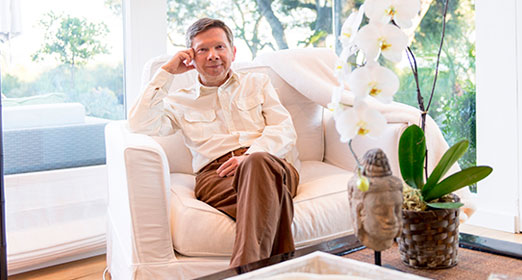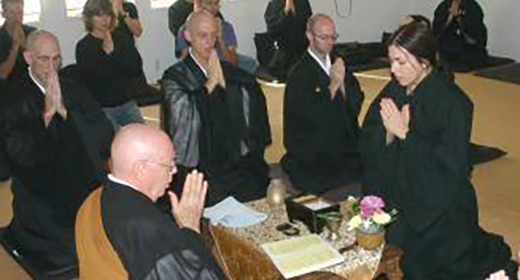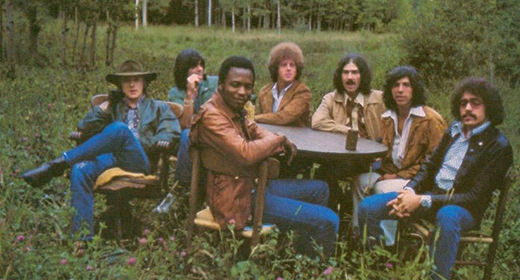by Gangaji: When I speak about vigilance and responsibility, I am speaking about the capacity to take responsibility for the grace that has appeared within the individual life form called “you.” 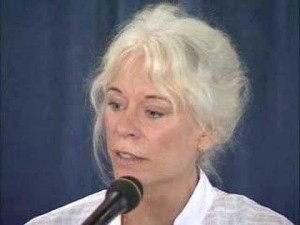 I am not speaking of a duty or a should. I am not speaking of anything that has weight or punishment attached to it. Vigilance is the capacity to take responsibility for where your attention is in the moment and to take responsibility when it habitually goes into the past and future.
I am not speaking of a duty or a should. I am not speaking of anything that has weight or punishment attached to it. Vigilance is the capacity to take responsibility for where your attention is in the moment and to take responsibility when it habitually goes into the past and future.
In general we are trained not to take responsibility. We are trained to know who we are and what reality is through our definitions, through others’ definitions, through cultural parameters, religious parameters, and even spiritual parameters. We limit ourselves when we rely on knowing ourselves indirectly, through predetermined thought.
When I met Papaji, he told me to stop. When I let that stop in, I recognized that he meant to stop every habit of defining myself. He meant to stop creating and recreating myself. What a monumental task that is, and yet it is absolutely immediate and simple. The truth of who we are is freshly revealed when we take responsibility for its direct discovery.
Our responsibility as a particular life form to the consciousness that animates us, to life itself, is ongoing. What grace that we can be responsible to the life that is present within us and outside us, to the silent life that is the source of all our life. As the source of all thoughts, consciousness is naturally present before all thought, during any thought and after all thought.
Our lives can be living proof of our capacity for responsibility. When the thinking mind reasserts itself and the habits of suffering come back to reclaim our allegiance, we can always take responsibility to be aware of the habits of mind. In our awareness of internal narrative habits, we can take responsibility to stop the narrative and discover what is present. We can take responsibility to internally meet what we have habitually avoided, or fought, or hidden from ourselves.
We can recognize when we turn our attention to defend a particular point of view or definition as reality. We will have points of view, of course – it is a part of being human – but when we embrace them as reality and decide that our reality conflicts with another’s reality, we forget to recognize that these are simply different points of view – multiple, infinite points of view – all arising from the same consciousness.
If you are willing to take an instant to withdraw attention from whatever your internal dialogue is, to withdraw energy from whatever the latest point of view about your suffering is, it is immediately obvious what is here: the fullness, the richness and the love of oneself as conscious life.
If there is an ongoing conversation about your pain and suffering, then you can take responsibility for the object of your attention. Where is your attention? The pain may not go away, but if you turn your attention to attention itself, you will discover that the spaciousness of consciousness has room for all feelings and sensations. The fullness of love, the fullness of beingness is always available, whatever the circumstances.
Vigilance is the call of a lifetime, and our responsibility is in answering that call. True responsibility ends all excuses for remaining a victim of thoughts. If you feel victimized by thoughts and habitual patterns of reaction, then I invite you to discover how that victimization is held in place. What habit of mind is being indulged? In recognizing the fruits of vigilance, the willingness to be “busted” and humbled is joyous. The idea that “my life will start when I don’t have to be vigilant any more,” or “ I won’t have to be vigilant when I reach a certain mark,” is really denial of the present moment’s opportunity for vigilance.
In hoping for an end to the need for vigilance, what is wanted? What emotion accompanies that hope? Where is it? Will you take responsibility for opening to that emotion fully, as you withdraw all internal dialogue associated with it? Will you meet what is here without hoping or knowing the outcome of such a meeting?
We can naturally keep deep, true, lifelong vigil at the flame of consciousness. Being responsible to vigilance honors that which gives each of our particular life forms its intelligence, its very ability to think and to imagine. Vigilance is the relishing of honoring the source above the thoughts and fantasies born of that source.
When we recognize that we have in some way denied our responsibility, we can bring it back into the center of the lifeblood of our awakening. Then we take responsibility for our continual awakening and for our inevitable mistakes. We can see that ignoring or defending our mistakes is irresponsible.
Responsibility and vigilance require full attention, but they don’t require energy, and they don’t require effort. The surrender of effort—of what is being done, of what is being reached for, or rejected, or hidden: of what is being thought—reveals the fire of consciousness as the ever-present ground.
Where is your attention in this very moment? If you’re attending to thoughts, let these words be a beacon to come home to yourself. What a blessing that your life can be the living vigil to that which is the ground of your life!

